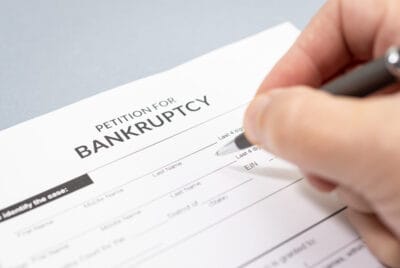
The Short Answer…
A medical lien is a legal claim that allows healthcare providers or insurance companies to get paid from your personal injury settlement for the care you received after an accident. Instead of paying medical bills upfront, you receive treatment now and your healthcare provider is reimbursed later from your settlement or court award.
While medical liens make it possible to get treatment when you can’t pay immediately, they can also reduce the amount of money you keep once your case settles. Working with a personal injury lawyer who can help manage and negotiate liens can make a major difference in the amount you ultimately recover.
Key Takeaways
- A medical lien allows providers to collect payment from your settlement instead of upfront, helping you access treatment after an accident.
- Medical liens can reduce your final payout, since providers and insurers are paid before you receive your share of the settlement.
- Multiple parties can file liens, including hospitals, doctors, and insurance providers.
- An attorney can identify, negotiate, and reduce medical liens to help you keep more of your compensation.
Table of Contents
- What Is a Medical Lien?
- How Do Medical Liens Work?
- Who Can Place a Medical Lien on a Personal Injury Settlement?
- How to Find Out If You Have a Medical Lien
- How Medical Liens Affect Your Settlement
- Negotiating Medical Liens After a Settlement
- How an Attorney Can Help You With Medical Liens
- Get Help Managing Medical Liens in West Virginia
What Is a Medical Lien?
A medical lien gives a healthcare provider or insurer the right to collect payment directly from your future settlement or judgment. If you’ve been injured in a car crash, slip and fall, or another accident, your provider may agree to treat you on a “lien basis.” This means they postpone payment until your case is resolved.
Essentially, a lien is a promise that once you receive compensation, part of that money will go toward paying your medical bills. It’s a common arrangement in personal injury cases where victims can’t afford treatment up front.
How Do Medical Liens Work?
The medical lien process typically begins right after you receive medical treatment for accident-related injuries and continues until your case is fully resolved. Here’s how things usually unfold:
- Treatment on a Lien Basis: After your accident, you get the medical care you need without paying out of pocket. Your provider agrees to be reimbursed later from your settlement or court award.
- Lien Agreement: The healthcare provider or insurer files a formal lien, notifying your attorney, the at-fault party, and their insurance company that they have a right to a portion of your eventual settlement.
- Settlement or Judgment: When your personal injury claim is resolved, the lienholder is paid directly from the settlement funds before you receive your share.
- Negotiation and Resolution: Your attorney reviews the lien to make sure it’s valid and reasonable, then works to negotiate lower amounts so you can retain as much of your settlement as possible.
Who Can Place a Medical Lien on a Personal Injury Settlement?
Several parties can file a medical lien on a settlement, including:
- Hospitals and clinics for emergency or follow-up treatment.
- Doctors, chiropractors, and physical therapists who treat you on credit.
- Health insurance companies that want reimbursement for payments they made on your behalf.
- Government programs such as Medicare or Medicaid, which may place liens for benefits they’ve covered.
How to Find Out If You Have a Medical Lien
You may have a medical lien if:
- You received medical treatment after an accident without paying upfront.
- You signed an agreement with your provider mentioning a lien or assignment of benefits.
- Your attorney or the at-fault party’s insurer received notice of a lien claim.
Your attorney can check public records and communicate with providers to confirm any outstanding liens before finalizing your settlement.
How Medical Liens Affect Your Settlement
Medical liens directly reduce your final payout. For example, if you receive a $100,000 settlement and owe $25,000 in medical liens, that amount must be paid before you can access the remaining $75,000. In some cases, multiple liens can dramatically cut into your compensation.
Common impacts include:
- Reduced Settlement Amount: A large portion may go toward medical bills.
- Delayed Payouts: Negotiating liens can take time.
- Ongoing Liability: If liens aren’t properly resolved, lienholders may pursue you for unpaid balances later.
What Happens If Your Settlement Doesn’t Cover All Your Medical Liens?
If your settlement doesn’t fully cover your liens, your attorney can work to negotiate reductions or payment arrangements to protect your finances.
What Happens If You Don’t Win Your Case?
If your case doesn’t result in a settlement or verdict, most lien agreements specify that providers cannot collect payment unless funds are recovered. However, this depends on your contract. Always review your lien documents carefully with your attorney before signing.
Negotiating Medical Liens After a Settlement
Negotiating your medical liens is one of the most important steps your attorney can help you take after your case settles. An experienced lawyer can:
- Challenge Invalid Liens: Some liens may be improperly filed or exceed legal limits.
- Dispute Overcharges: Providers must bill reasonably for necessary services.
- Negotiate Reductions: An attorney can fight so you keep more of your settlement.
- Coordinate Payments: Ensuring all liens are satisfied prevents future claims or credit damage.
How Long Does It Take to Settle Medical Liens?
The timeline varies by case complexity and the number of lienholders. In most cases, settling medical liens can take anywhere from a few weeks to several months after your personal injury settlement is reached. Working with a qualified injury attorney can help speed up the process and ensure that all liens are resolved correctly.
How an Attorney Can Help You With Medical Liens
Dealing with medical liens after an accident can be confusing and stressful, especially when you’re already trying to recover from your injuries. At Stewart Bell, PLLC, our experienced personal injury attorneys understand how these liens can affect your settlement and your financial future. We know how to protect your rights and can help ensure that medical providers and insurance companies play fair.
Here’s how our legal team can help:
- Identify and Verify All Liens: We thoroughly review your case to confirm which liens are legitimate and make sure no invalid or duplicate claims reduce your settlement unfairly.
- Negotiate Reductions and Dismissals: Our attorneys have decades of experience negotiating directly with hospitals, doctors, and insurers to lower the total owed or, in some cases, have liens removed altogether.
- Ensure Compliance With West Virginia Law: We make sure every lien follows state legal requirements, including proper filing and notification procedures, to prevent any improper deductions from your settlement.
- Maximize Your Net Recovery: Our goal is to help you keep as much of your compensation as possible by reducing unnecessary deductions and avoiding overpayment to lienholders.
- Handle All Communications and Paperwork: We take care of every detail from contacting providers and managing deadlines to finalizing resolutions so you can focus on your recovery, not the red tape.
When you choose Stewart Bell, PLLC, you’re choosing a team that’s committed to your long-term success. We work tirelessly to protect your settlement, negotiate aggressively on your behalf, and secure a fair financial outcome.
Get Help Managing Medical Liens in West Virginia
If medical liens are standing between you and fair compensation, Stewart Bell, PLLC is ready to fight for you. Our team helps injured clients across West Virginia untangle complicated lien issues, negotiate substantial reductions, and maximize the amount they take home after a settlement.
We understand how overwhelming it can feel to face hospital bills and collection notices while waiting for your case to resolve. We don’t let hospitals, insurers, or billing departments take more than they’re entitled to. We work on a contingency fee basis, meaning you never pay upfront and we only get paid when we successfully recover money for you.
Contact us today for a free, no-obligation consultation. Let us help you understand your options, protect your rights, and make sure your settlement works for you.





